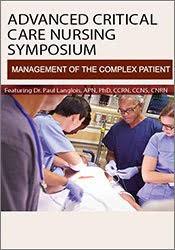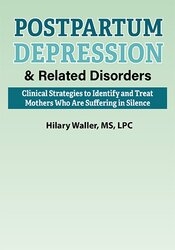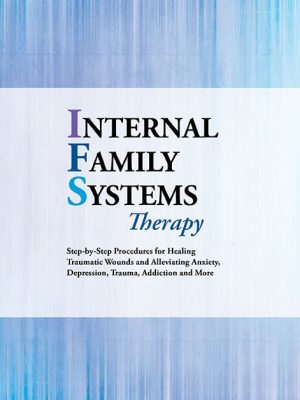Dr. Paul Langlois – Advanced Critical Care Nursing Symposium Day 2
$219.00 Original price was: $219.00.$61.75Current price is: $61.75.
Available for Pre-Order. This product will be available within a few days.
Dr. Paul Langlois – Advanced Critical Care Nursing Symposium Day 2
Take your practice to the next level with cutting-edge strategies for the most challenging & complex patients
Working in the rapidly changing critical care setting, you need to be, up to date on the most current and cutting-edge strategies and interventions to care for these high acuity patients. Get the latest and greatest in this exciting and engaging conference, where expert, Dr. Paul Langlois, APN, PhD, CCRN, CCNS, CNRN, will challenge you to take your knowledge to the next level. He will discuss the most common, yet most challenging cases, that critical care nurses are working with each day:
- Heart Failure
- STEMI & NSTEMI
- Pneumonia
- ARDS
- Ischemic & Hemorrhagic Stroke
- Renal Failure
- Multi-system Failure
Attend this comprehensive program and leave with practical, immediately applicable strategies to gain better patient outcomes and enhance your expertise. Don’t miss this opportunity to network with your peers, learn from an expert in the field, and leave with a renewed commitment to achieving excellence in critical care nursing.
OUTLINE
Case Study: The patient admitted with Pneumonia currently on a Ventilator
- Diagnosis
- Community vs. Hospital Acquired
- Physical Assessment Findings
- Interpreting the Chest X-ray
- Gram Stain vs. Culture & Sensitivity
- Typical Bacteria Causing Pneumonia
- Antibiotics
- Top Choice for Empiric Antibiotics
- What is an Antibiogram?
- When to Switch from Empiric to Narrow-Spectrum Antibiotics
- Blood Gas Analysis
- Four Criteria for Ventilator Associated Pneumonia
- Modes of Mechanical Ventilation
- Intubation Criteria
- SIMV, AC, Bi-level, CPAP, NIPPV
Case Study: The patient admitted with Acute Respiratory Distress Syndrome (ARDS)
- Diagnosis by Berlin Definition
- Pain Medications
- Sedating Medications
- Neuromuscular Blocking Agents
- Prone Positioning
Case Study: Ischemic an Hemorrhagic Stroke
- Diagnosis: Ischemic & Hemorrhagic
- FAST Assessment
- Interpreting the CT Scan, MRI & Brain Angiography
- Implications of Transient Ischemic Attack
- Stroke vs. Bell’s Palsy
- Critical Labs
- Blood Pressure Control: How & When
- Labetalol
- Nicardipine
- Metroprolol
- Intra-Arterial Thrombolysis
- Mechanical Thromboectomy
- Aneurysm Clipping vs. Coiling
- Risks & Benefits
- Administering TPA for Ischemic Stroke
- Intracranial Pressure Monitoring
- Intraparenchymal Catheter
- External Ventricular Drain
- Interpreting Ventricular Waveforms
Case Study: The patient admitted in Renal Failure
- Diagnosis
- Laboratory Values:
- BUN
- Creatinine, Creatinine Clearance
- Electrolyte Alterations
- Physical Assessment Findings
- Laboratory Values:
- Modes of Dialysis
- Indications & Contraindications
- Venous Access: Location is a Priority
- Continuous Renal Replacement Therapy
- SCUF, CVVH, CVVHD, CVVHDF
- Intermittent Dialysis
Case Study: The patient admitted with Multi-System Failure
- Systemic Inflammatory Response Syndrome (SIRS)
- Sepsis
- Guidelines from the Society of Critical Care Medicine
- Septic Shock
- Fluid Resuscitation
- Which Fluids
- How Much & How Quickly
- Antibiotic Pharmacology for Infections
- What to Start First
- Six Vasopressors to Consider
- Phenylephrine
- Norepinephrine
- Epinephrine
- Dopamine
- Dobutamine
- Vasopressin
- Bleeding Alterations with Multi-Organ Failure
- Disseminated Intravascular Coagulation (DIC)
- Diagnosis
- Treatment
- Disseminated Intravascular Coagulation (DIC)
Would you like to receive Dr. Paul Langlois – Advanced Critical Care Nursing Symposium Day 2 ?
OBJECTIVES
- Examine emerging technologies and identify indications for use, benefits and potential risks, as well as appropriate and safe utilization.
- Investigate current clinical guidelines and management strategies for critical care problems including; SIRS, sepsis and septic shock.
- Describe patients in various stages of sepsis, measures of early fluid resuscitation points and discuss early evidence-based therapy.
- Discriminate between the treatments for ischemic and hemorrhagic stroke.
- Recognize dangerous drug-drug interactions of medications used in treating critical conditions.
- Distinguish the best pharmacologic methods to achieve blood pressure control for patients with ischemic and hemorrhagic stroke.
Be the first to review “Dr. Paul Langlois – Advanced Critical Care Nursing Symposium Day 2” Cancel reply
Related products
Health & Medical
Health & Medical
Health & Medical
Kate Freeman – Heart Of Releasing – Healthy Body, Beautiful Being
Health & Medical
Health & Medical













Reviews
There are no reviews yet.